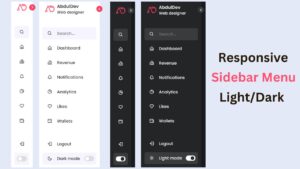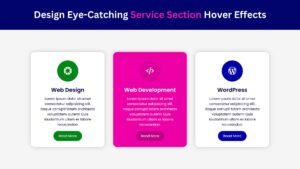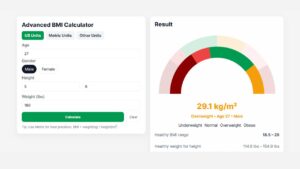
SEO for Beginners: Demystifying the World of Search Rankings
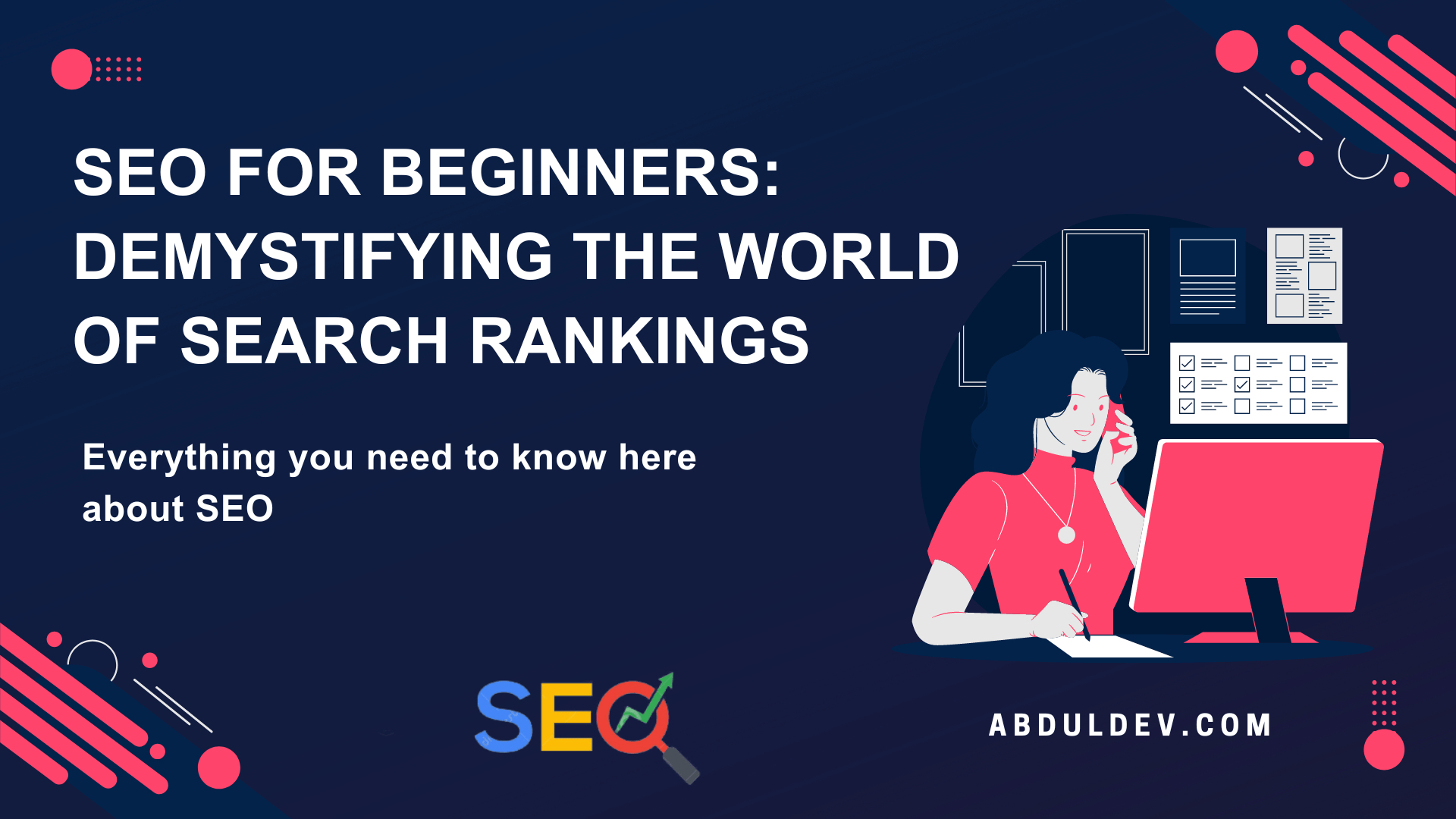
Search Engine Optimization (SEO) can seem like a complex and overwhelming topic, especially for beginners. However, understanding the basics of SEO is crucial for anyone looking to increase their online visibility and drive more traffic to their website. This article will break down the essential elements of SEO, helping you demystify the world of search rankings and get started on your SEO journey.
What is SEO?
Search Engine Optimization (SEO) is optimizing a website to improve its visibility and ranking in organic search results.
When a user enters a search query, search engines like Google and Bing use their algorithms to determine the most relevant and valuable results to display. By optimizing your site with relevant keywords, quality content, and user-friendly design, you can increase your chances of ranking higher in search results. SEO includes on-page optimization, such as keyword research, keyword optimization, and meta tags, and off-page optimization, such as link building and social media.
Providing a great user experience and relevant content can make your website more visible and attractive to search engines and users. Effective SEO requires ongoing effort and strategy, as search engine updates and changes can impact rankings. Using keyword research tools and SEO services can help you stay ahead of the competition and continually improve your website’s visibility and search volume.
With quality content and relevant keywords, you can ensure that your site is visible but also helpful and informative to your target audience. Read more about different types of SEO.
The Benefits of Optimizing Your Site for Search
In today’s digital age, having a solid online presence is crucial for businesses of all sizes. Search Engine Optimisation (SEO) is optimizing your website to improve its visibility and ranking on search engines like Google, Bing, and Yahoo. The benefits of SEO are manifold.
Enhancing your search engine rankings can attract more targeted traffic to your site, leading to increased sales and revenue. People searching for products or services related to your business are more likely to convert into customers. Secondly, SEO is a cost-effective way to promote your business online. Compared to traditional advertising methods like print or TV ads, Search Engine Marketing (SEM) can deliver higher ROI since it targets users actively looking for what you offer.
Moreover, SEO is a long-term strategy that can yield lasting benefits. Unlike Keyword Stuffing (a black hat SEO technique), which can get your site penalized or banned, a comprehensive SEO approach involves optimizing each site page for a relevant Keyword Phrase or Long-Tail Keyword. This helps search engines understand the purpose and content of your site but also provides a better user experience for your visitors.
Finally, SEO is a measurable activity. By using analytics tools like Google Analytics, you can track the performance of each piece of Content and tweak your strategy accordingly. This enables you to continually improve your site’s ranking, traffic, and conversions.
In summary, the benefits of Search Engine Optimisation are numerous and far-reaching. By optimizing your site for search engines, you can drive targeted traffic, increase sales, save money on advertising, improve user experience, and measure your results. With the ongoing changes to search algorithms, it is essential to stay abreast of the latest trends and techniques in SEO to ensure that your site stays ahead of the competition.
The Basics of How SEO Works

It can seem overwhelming if you’re new to search engine optimization (SEO). However, at its core, SEO for beginners is about improving the quality and relevance of your website’s content so that search engines can better understand your site and show it to the right people at the right time. At a high level, search engines like Google use complex algorithms to determine which websites are the best matches for a given search query. These algorithms consider hundreds of factors, including the content on your site, the links pointing to it from other sites, and the overall user experience your site provides. To improve your site’s chances of ranking well in search results, you must focus on two key areas: on-page and off-page optimization. On-page optimization involves changing your site’s content and structure to match the keywords and topics you want to rank for. This might include optimizing your headlines, using keywords in your page titles and descriptions, and ensuring your site’s navigation is straightforward.
On the other hand, off-page optimization involves building high-quality links from other websites to yours. The more authoritative and relevant the sites linking to you are, the more likely search engines will see your site as a trusted and valuable resource. Together, these two types of optimization work hand in hand to improve your site’s visibility and rankings in search results. Of course, SEO is an ongoing process, and it can take time to see results. But by focusing on the basics and following best practices, you’ll be well on your way to building a search-friendly site that delivers accurate results for your business.
Understanding Keywords
Keywords are the words and phrases that people type into search engines when looking for information. Identifying and using the right keywords is a cornerstone of successful SEO.
How to Conduct Keyword Research
- Identify Your Audience: Understand who your target audience is and what they are searching for.
- Use Tools: Utilize keyword research tools like Google Keyword Planner, SEMrush, or Ahrefs to find relevant keywords.
- Analyze Competition: Look at the keywords your competitors are ranking for and find opportunities to target similar or related keywords.
By incorporating these keywords naturally into your content, you help search engines understand what your page is about, increasing your chances of ranking higher for those terms.
On-Page SEO Basics
On-page SEO refers to the elements on your website that you can optimize for better search rankings.
Optimizing Title Tags and Meta Descriptions
- Title Tags: The title tag is the clickable headline that appears in the search results. Make sure it includes your primary keyword and is enticing enough to encourage clicks.
- Meta Descriptions: These are the brief snippets that appear under your title tag in the search results. While meta descriptions don’t directly affect rankings, a well-written one can improve your click-through rate (CTR).
The Importance of Header Tags
Header tags (H1, H2, H3, etc.) structure your content and make it easier for both users and search engines to understand. Your H1 tag should include your main keyword, while H2 and H3 tags can organize subsections and secondary keywords.
Creating SEO-Friendly Content
Content is king in SEO. Focus on creating high-quality, valuable content that answers your audience’s questions and meets their needs. Use keywords naturally throughout the content, but avoid keyword stuffing, which can hurt your rankings.
Off-Page SEO Essentials
Off-page SEO refers to actions taken outside of your website that impact your search rankings.
The Role of Backlinks
Backlinks are links from other websites to your site. They act as “votes of confidence” in the eyes of search engines, indicating that your content is valuable and trustworthy. The more high-quality backlinks you have, the better your chances of ranking higher.
How to Build Quality Backlinks
- Create Shareable Content: Develop content that others will want to link to, such as infographics, case studies, or comprehensive guides.
- Guest Blogging: Write guest posts for reputable websites in your industry, including a link back to your site.
- Outreach: Reach out to industry influencers and bloggers, asking them to share or link to your content.
Technical SEO Overview
Technical SEO involves optimizing the backend of your website to improve its performance and make it easier for search engines to crawl and index your pages.
Website Speed and Mobile-Friendliness
- Speed: A slow website can negatively impact your rankings. Use tools like Google PageSpeed Insights to check your site’s speed and identify areas for improvement.
- Mobile-Friendliness: With more users accessing the web on mobile devices, it’s crucial to have a responsive design that works well on all screen sizes.
XML Sitemaps and Robots.txt
- XML Sitemaps: An XML sitemap helps search engines understand the structure of your site and find all your pages.
- Robots.txt: This file tells search engines which pages they should and shouldn’t crawl. Properly configuring your robots.txt file ensures that important pages are indexed.
Google Search Console
Google Search Console is a free tool that provides insights into how your site is performing in search results. Use it to monitor your rankings, identify issues, and submit your sitemap.
SEO Tools for Beginners
There are numerous tools available to help you with your SEO efforts. Here are a few essentials:
- Google Analytics: Tracks your website traffic and provides valuable insights into how users interact with your site.
- SEMrush: A comprehensive SEO tool that offers keyword research, site audits, and competitive analysis.
- Ahrefs: Primarily known for its backlink analysis, Ahrefs also offers keyword research, content analysis, and more.
These tools can help you understand your current SEO standing and identify opportunities for improvement.
Common SEO Mistakes to Avoid
Even the best-intentioned SEO efforts can go awry if you’re not careful. Here are some common mistakes to avoid:
- Keyword Stuffing: Overusing keywords in your content can lead to penalties from search engines. Focus on natural, valuable content instead.
- Ignoring Mobile Optimization: With mobile traffic on the rise, a non-responsive website can lose significant traffic and ranking potential.
- Neglecting User Experience: Poor navigation, slow load times, and intrusive ads can drive users away, hurting your rankings. Prioritize a smooth, user-friendly experience.
Measuring Your Results with Analytics
Now that you’ve optimized your site for search, how do you know SEO for beginners working? That’s where analytics comes in.
Analytics allow you to track traffic to your site, including where it’s coming from and which pages are most popular. You can also see how long visitors are staying on your site and if they’re interacting with it in the way you intended. One of the most popular analytics tools is Google Analytics.
It’s free and provides a wealth of information about your site’s performance. You must add a tracking code to your site’s code to use it. Once it’s set up, you can start tracking your site’s traffic.
When analyzing your analytics, it’s essential to keep an eye on the following metrics:
- Traffic sources: Where is your traffic coming from? Are visitors finding you through search engines, social media, or other sites?
- Bounce rate: This is the percentage of visitors who leave your site after viewing only one page. A high bounce rate could indicate that your site needs to meet visitors’ needs or that your content needs to be more engaging.
- Conversion rate: This is the percentage of visitors who take a specific action on your site, such as filling out a form or purchasing. A low conversion rate could indicate that your site needs to guide visitors toward these actions more effectively.
By monitoring these metrics and adjusting your site as needed, you can continually improve your SEO efforts and drive more traffic and conversions.
The Future of SEO
As with any industry, SEO is constantly evolving and changing. While the basics of optimizing for search will likely remain the same, there are a few trends that experts predict will shape the future of SEO.
- Mobile optimization: With more and more people using mobile devices to browse the internet, websites must be optimized for mobile viewing. This means fast loading times, easy navigation, and responsive design.
- Voice search: As technology advances, voice search becomes more prevalent. It’s estimated that by 2020, 50% of all searches will be voice searches. This means that websites must optimize for conversational queries and natural language.
- Artificial intelligence: AI is already used in search algorithms to provide more relevant results. As this technology improves, search engines will likely become even more innovative and better at understanding user intent.
- Visual search: With the rise of image and video-based social media platforms like Instagram and Pinterest, visual search is becoming more critical. Websites must optimize their photos and videos for examination to ensure they appear in relevant results.
- Local search: With the increasing importance of mobile and voice search, local search is also becoming more crucial. Websites that optimize for local search will be more likely to appear in local results and attract nearby customers.
In summary, the future of SEO will involve mobile optimization, voice search, artificial intelligence, visual search, and local search. By staying current on these trends, businesses can ensure they effectively optimize for search and stay ahead of the competition. This is an excellent overview of SEO for beginners. Read more about the WordPress guideline for beginners.
Conclusion
SEO doesn’t have to be overwhelming. By understanding the basics of keywords, on-page and off-page SEO, technical SEO, and using the right tools, you can start improving your search rankings and driving more traffic to your website. Remember, SEO is an ongoing process that requires patience, consistency, and a willingness to adapt to changes in search engine algorithms.
FAQs
Why is SEO important?
SEO is essential because it helps your website gain organic (non-paid) visibility on search engines. By optimizing your website, you can attract more targeted traffic, increase brand visibility, and ultimately drive more conversions and revenue.
What are the critical elements of SEO?
The key elements of SEO include keyword research, on-page optimization (such as optimizing title tags, meta descriptions, and headings), off-page optimization (building quality backlinks), technical optimization (improving website performance and crawlability), and content creation.
How long does it take to see results from SEO efforts?
SEO is a long-term strategy that takes time to see significant results. The timeline can vary depending on factors such as the competitiveness of your industry, the quality of your optimization efforts, and your website’s authority. Generally, it can take several months to start seeing noticeable improvements.
What are keywords, and why are they important in SEO?
Keywords are words or phrases people use when searching for information on search engines. They are essential in SEO because they help search engines understand the relevance of your content to users’ queries. By optimizing your website with relevant keywords, you increase the chances of ranking higher in search results for those queries.
What is on-page optimization?
On-page optimization refers to optimizing elements on your website to improve its visibility and relevancy to search engines. This includes optimizing title tags, meta descriptions, headings, and URL structure and incorporating keywords naturally into your content.
What are backlinks, and why are they important for SEO?
Backlinks are links from external websites that point to your website. They are essential for SEO because search engines view backlinks as votes of confidence. High-quality backlinks from reputable websites can improve your website’s authority and credibility, positively impacting your search rankings.
Share on Social Media
Related Articles
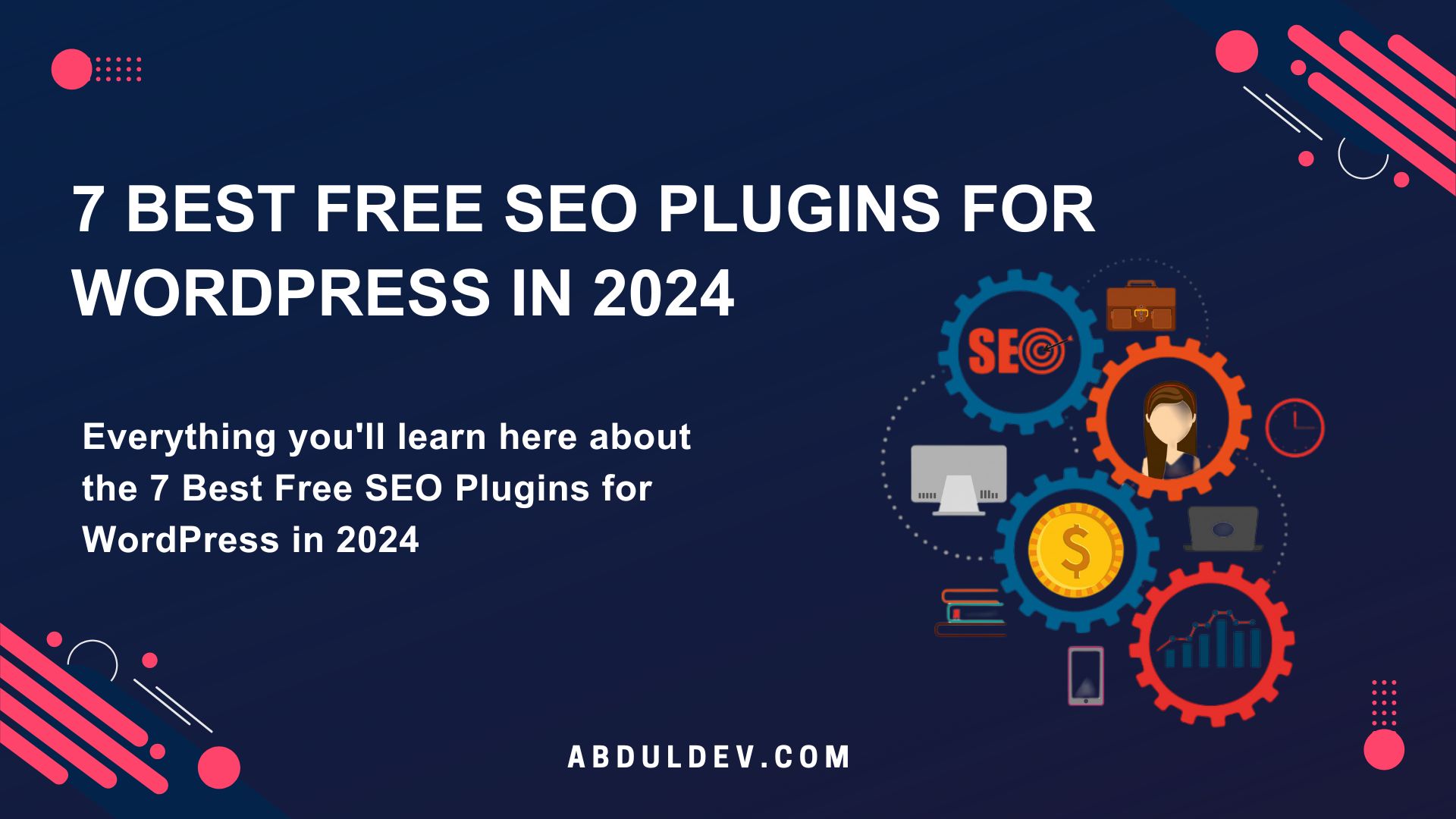
7 Best Free SEO Plugins for WordPress in 2025
Boost your WordPress site’s search rankings with these 7 free SEO plugins. Discover the best tools to optimize your content,

9 Benefits of Using Professional Keyword Research Services
Looking for professional keyword research services? I will help you identify your business’s most relevant and profitable keywords. Let us
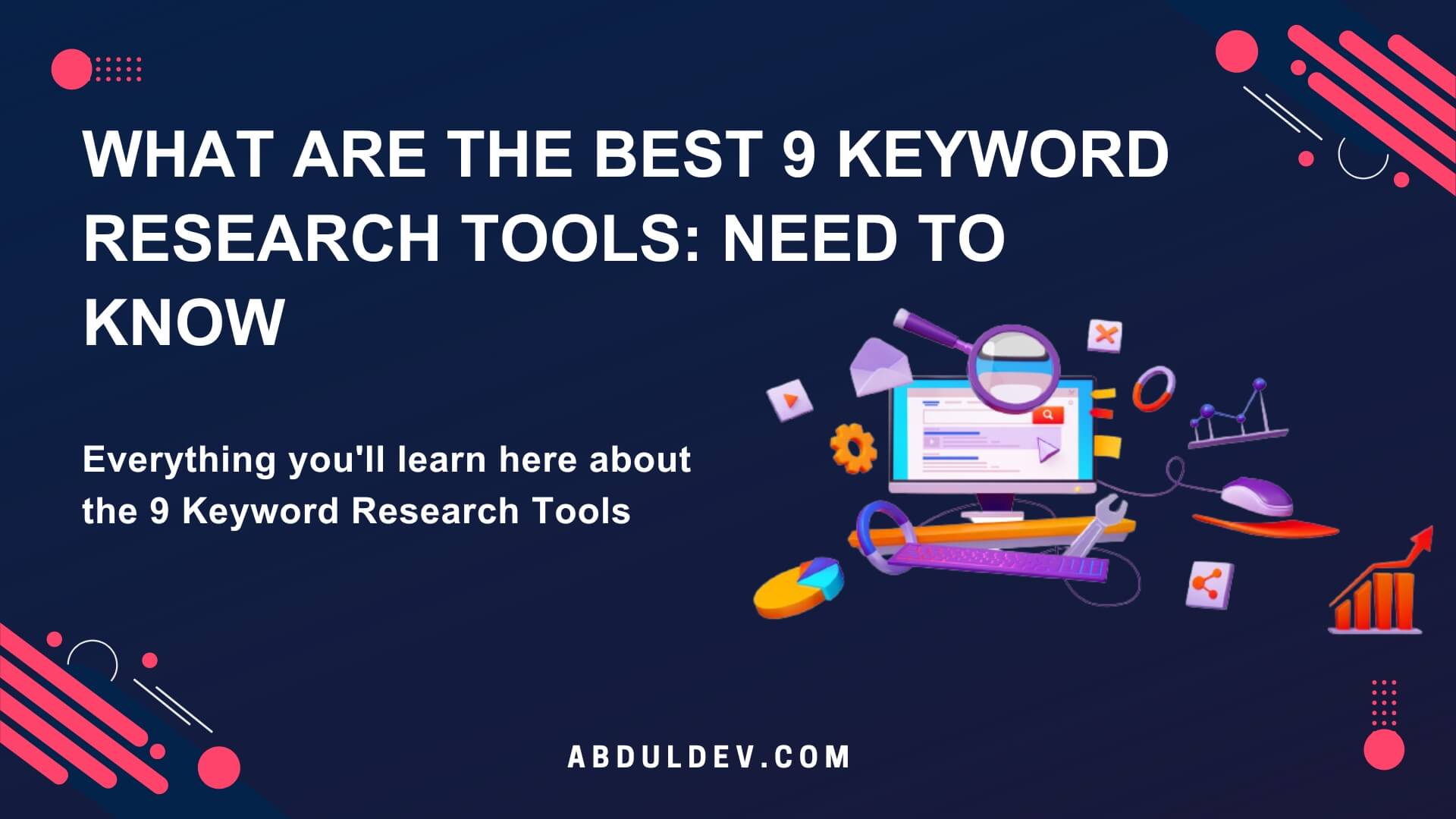
What Are The Best 9 Keyword Research Tools: Need to Know
Finding the right keywords is essential for any successful SEO strategy. Discover the best keyword research tools to help you






